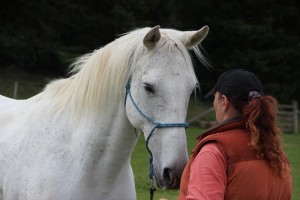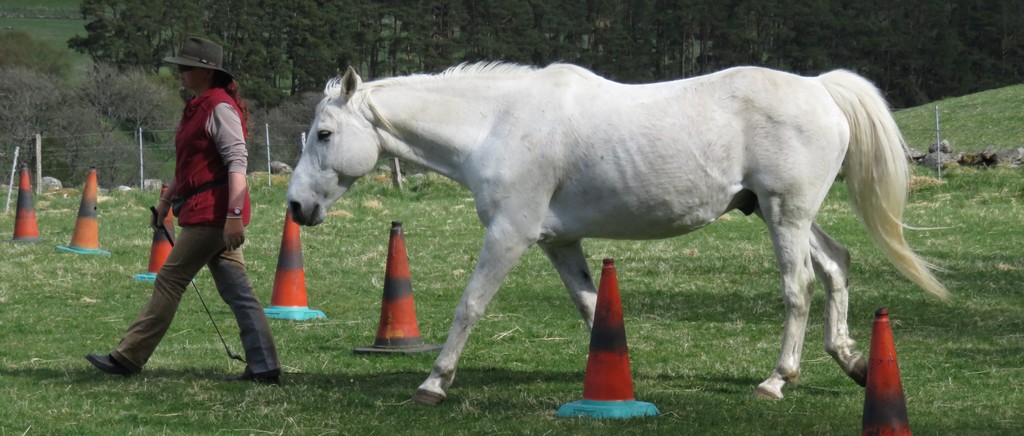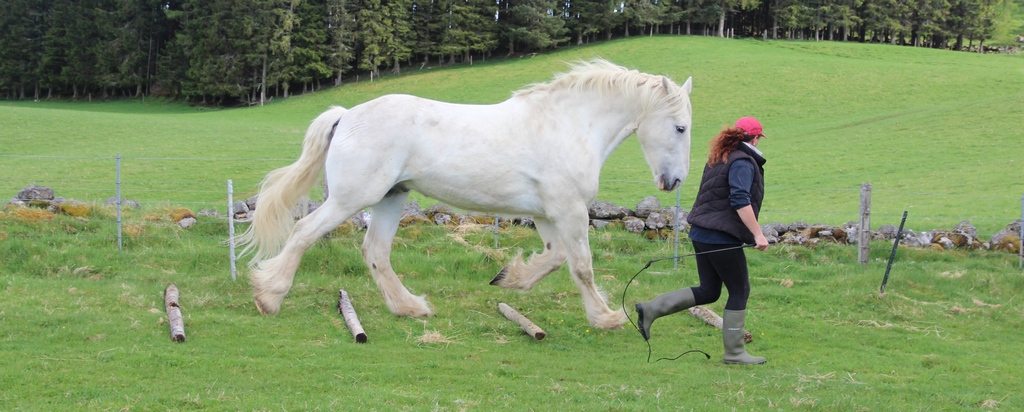
Some horses and their owners have no trouble going out and about, trekking here, there and everywhere. I was one of them with my solid, calm gypsy cob Tara. She and I have gone over hill, glen and rivers for hours on end in our time riding out and we have a lot of photographs to remember them all by too. But since getting Solly, my TB x Highland, things have been slightly different. He has a sceptical nature, is a live wire sometimes and takes a long time to trust SO going out has been eventful and now very rare. But that is hopefully going to change 😉
The reason I decided not to hack him out any more was that I don’t want to have any accidents with him or to loose his trust in me. Our relationship in the field with training (liberty, online, lateral ridden and jumping) has become very good, when we started in the field there were places that he wouldn’t ride even though it’s where he eats every day so I knew he would be worse in new environments. His ground work is going well but he changes character when I ride him, from a bored, lazy horse who needs motivation to a sceptical horse that can spook at something that’s not there. For this sort of horse consistency is the best teacher.
When one of my students has trouble with a technique, a task, riding inconsistencies or unconfidence in new places I always say ‘start in a small area, build to bigger area’s and use consistency for confidence and don’t forget to progress’. Working with these methods helps gain the horse/human connection from their normal comfort zones to larger area’s which then become their new comfort zones. SO…this is what I have done with myself and Solly too…..we’ve gone back to basic’s and finding RELAXATION through CONSISTENCY so that we can stretch our COMFORT ZONES to larger area’s. (See previous blog post – Training Tip: ‘Stepping out of your Comfort Zone to Progress’)
This week we’ve started the CZT process (Comfort Zone Training) as I was away for quite a while teaching and with family to the point that our ‘connection’ was weak. I will endeavour to write about the experience of approaching and retreating with comfort zones (his AND mine) here on this blog and hope we can help and inspire others having similar experiences. I will put it all in the new category ‘Comfort Zone Training’ and make it a series of posts with video if I can.
It will hopefully show how consistency basic’s can be used to sweeten a new area for your horse by only changing the environment not the techniques and this then helps bring relaxation quickly so that the new environment can be added to your original comfort zone which equals progress. I will also talk about you and horse ‘THRESHOLDS’…these are where fear/flight/fight/shutdown can occur so we need to take care of those to help everything go smoothly.
For me it’s about keeping the connection and not pushing a horse through his thresholds to where his instinct kicks in and the communication/connection is lost. Once we’ve gone there we’ve lost relaxation and we’ve not listened to our horses fears and thereby lost his trust in us. I want a horse to have complete trust in me so that I have complete trust in him and with some horses you just need to take the time to allow this to grow together 🙂
- Shelley – HorseSavvy

